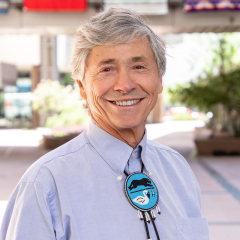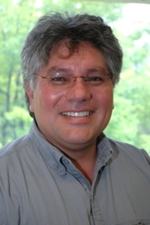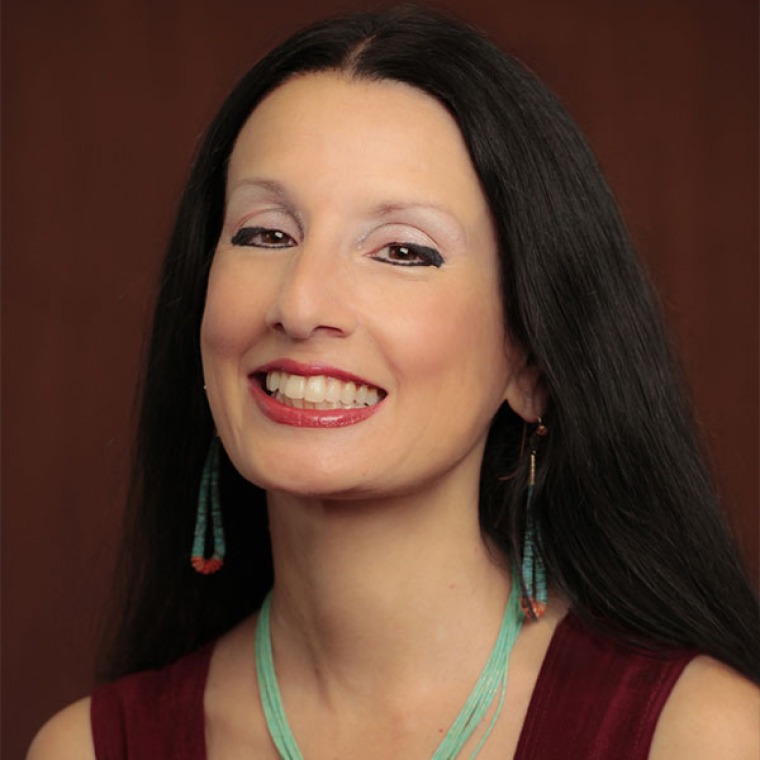Discussion Description:
Johnson v. M’Intosh was decided 200 years ago. While the case remains binding precedent, the premise underlying the decision has become increasingly suspect over time. The case relies on the Doctrine of Discovery, which assumes lands inhabited by non-Christians are vacant. The Doctrine has been formally renounced by the Vatican and condemned by others. Nevertheless, the Doctrine remains a foundation of American law. Join the AALS Indian Nations and Indigenous Peoples Section’s webinar to learn how leading scholars address the Doctrine of Discovery in their classrooms.
 Robert Miller, Willard H. Pedrick Distinguished Research Scholar, Professor of Law, Arizona State University Sandra Day O’Connor College of Law
Robert Miller, Willard H. Pedrick Distinguished Research Scholar, Professor of Law, Arizona State University Sandra Day O’Connor College of LawRobert J. Miller’s areas of expertise are Federal Indian Law, American Indians and international law, American Indian economic development, Native American natural resources, and Civil Procedure. He is an enrolled citizen of the Eastern Shawnee Tribe, the Interim Chief Justice for the Pascua Yaqui Tribe Court of Appeals and sits as a judge for other tribes. He is the Willard H. Pedrick Distinguished Research Scholar at ASU and the Faculty Director of the Rosette LLP American Indian Economic Development Program at ASU.
In 2014 he was elected to the American Philosophical Society. The APS is the oldest learned society in the United States and was created by Benjamin Franklin in 1743. Thomas Jefferson served as president of the APS for seventeen years overlapping his time as president of the United States. The APS has only elected about 5,600 members in its 280 year history.
Before joining ASU in 2013, Professor Miller was on the faculty of Lewis & Clark Law School from 1999-2013. Prior to his career in academia, he practiced Indian law with Hobbs, Straus, Dean & Walker, and practiced litigation with the Stoel Rives law firm. Following graduation from law school, he clerked for Judge Diarmuid O’Scannlain of the U.S. Court of Appeals for the Ninth Circuit.
Professor Miller’s scholarly works include articles, books, and book chapters on a wide array of Federal Indian Law issues and Civil Procedure, and he speaks regularly on Indian Law issues across the U.S. and in other countries. He is the author of “Native America, Discovered and Conquered: Thomas Jefferson, Lewis and Clark, and Manifest Destiny” (Praeger 2006), and “Reservation Capitalism: Economic Development in Indian Country” (Praeger 2012). He co-authored “A Promise Kept: The Muscogee (Creek) Nation and McGirt v. Oklahoma (forthcoming University of Oklahoma Press 2022); “Creating Private Sector Economies in Native America: Sustainable Development through Entrepreneurship (Cambridge University Press 2019); and “Discovering Indigenous Lands: The Doctrine of Discovery in the English Colonies” (Oxford University Press 2010). Professor Miller has worked as a consultant with the American Philosophical Society since 2006 on tribal language and archival issues. He was elected to the American Law Institute in 2012.
 Richard Monette, Professor, law; director, Great Lakes Indian Law CenterLaw School, University of Wisconsin Law School
Richard Monette, Professor, law; director, Great Lakes Indian Law CenterLaw School, University of Wisconsin Law SchoolProfessor Richard Monette served as a Staff Attorney with the United States Senate Committee on Indian Affairs, as the Director of the Office of Congressional and Legislative Affairs at the Bureau of Indian Affairs. As one of the very few Professors of Law who is a enrolled member of a Native Nation who also grew up in his Native Nation’s territory or reservation, Professor Monette was twice elected Chairman of the Turtle Mountain Band of Chippewa while on leave from the law school, providing a truly unique perspective and depth of knowledge on the everyday legal issues facing Native Nations. Professor Monette has also served as President of the National Native American Bar Association, on the Environmental Protection Agency’s National Environmental Justice Advisory Council’s Indigenous Peoples’ Subcommittee, as the Chief Judge for the Pascua Yaqui Tribe, a Special Judge for Ho Chunk Nation and as a Special Judge for the Trial Court of the Turtle Mountain Band of Chippewa. Professor Monette specializes in drafting constitutions, amendments, and implementing codes for Native Nations. In conjunction with the private bar, Professor Monette has drafted or consulted on more constitutions for Native Nations than any other person or organization. Professor Monette teaches in the areas of Federal Indian Law, Conflict of Laws, Water Law, and Constitutional Law. He is the Faculty Director for the Great Lakes Indigenous Law Center.
 Rebecca Tsosie, Regents Professor and Morris K. Udall Professor of Law, University of Arizona James E. Rogers College of Law
Rebecca Tsosie, Regents Professor and Morris K. Udall Professor of Law, University of Arizona James E. Rogers College of LawRebecca Tsosie is a Regents Professor at the James E. Rogers College of Law at the University of Arizona. Professor Tsosie, who is of Yaqui descent, is a faculty member for the Indigenous Peoples’ Law and Policy Program at the University of Arizona, and she is widely known for her work in the fields of Federal Indian law and indigenous peoples’ human rights. Prior to joining the UA faculty, Professor Tsosie was a Regents’ Professor and Vice Provost for Inclusion and Community Engagement at Arizona State University. Professor Tsosie was the first faculty Executive Director for ASU’s Indian Legal Program and served in that position for 15 years. Professor Tsosie has published widely on sovereignty, self-determination, cultural pluralism, environmental policy and cultural rights. She teaches in the areas of Federal Indian Law, Property, Constitutional Law, Critical Race Theory, and Cultural Resources Law. Professor Tsosie is a member of the Arizona Bar Association and the California Bar Association. Professor Tsosie serves as a Supreme Court Justice for the Fort McDowell Yavapai Nation and as an Associate Judge on the San Carlos Tribal Court of Appeals. She received her B.A. and J.D. degrees from the University of California, Los Angeles.